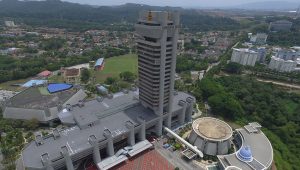Battlestate Selangor — 1st real test for unity government

Cooperation would be secured, but the crisis would not be over should PH-BN win.
Radzi Razak, The Malaysian Reserve
THE 2018 Selangor state election was significant as it marked the first time that the state was contested under the leadership of Tun Dr Mahathir Mohamad and his newly-formed political coalition, Pakatan Harapan (PH). The election saw PH emerge victorious, winning 51 out of 56 state assembly seats, while the former ruling coalition, Barisan Nasional (BN), won only four seats with the sole remaining seat won by an independent candidate.
The result was a significant blow to BN, in its attempt to wrestle back the state lost since 2008, and was widely seen as a reflection of the wider political shift in Malaysia towards a desire for change and reform. PH’s victory was also notable for the high voter turnout, with over 82% of eligible voters casting their ballots.
This time around, with the 15th General Election (GE15) fresh in mind, PH will be cooperating with BN to face Perikatan Nasional (PN), which has significant support following the so-called “green wave”.
Both sides are still deeply in discussions on the allocations of seats of parties in their respective alliance.
Malay Votes Advantage to PN
Despite the 2018 big win, the GE15 results for parliamentary seats in Selangor has raised concerns as a significant performance from PN could very well mean PH will lose its former seats.
Associate director for Vriens & Partners, a government affairs and political risk consultancy, Shazwan Mustafa Kamal told The Malaysian Reserve (TMR) while Selangor will likely remain under PH, it would not be so clear cut.
“What would be interesting to see are two things — the contest in Malay majority areas and whether support for Umno (BN) would have changed or would it translate into support for PN; and for PH seats, whether the Umno-PH alliance would translate into protest votes,” he said, emphasising the weak Umno performance in GE15.
Data provided by the Election Commission (EC) offers valuable insights into the shifting voter patterns in Sabak Bernam, Tanjong Karang, Hulu Selangor, Sungai Besar, Kapar and Kuala Langat. These constituencies have traditionally been strongholds for various political parties and the numbers indicate an interesting strategic dynamic between the PH and BN coalitions.
PN emerged victorious during GE15 in the fight for Sabak Bernam, Tanjong Karang, Hulu Selangor, Sungai Besar, Kapar and Kuala Langat parliamentary seats. Notably, Kapar and Kuala Langat had been solid PH strongholds since 2008.
Moreover, the results in several state seats such as Batu Tiga, Kuala Kubu Baru, Taman Templer, Lembah Jaya, Meru, Tanjong Sepat and Sungai Pelek were extremely close, with a difference of fewer than 3,000 votes.
One of the significant factors contributing to these changing dynamics is the implementation of Undi 18, which automatically registered 1.26 million new voters in the state. This move has increased the total number of eligible voters to 3.67 million. Notably, EC data indicates that PN secured between 65% and 90% of the new voters added to the electoral roll after the voting age was lowered to 18.
For instance, in Kapar, a former PH strong-hold, PN won approximately 67.5% or 34,400 out of the approximately 52,000 new voters. In contrast, PH managed to add only about 5,300 new voters, while BN gained around 8,700.
Similarly, in Kuala Langat, the PN candidate from PAS received 52,867 votes compared to the 18,700 votes the Islamic party garnered in GE14. Despite an increase of over 35,800 new voters in the area, PH only managed to secure an additional 7,800 votes, while BN experienced a decrease of 7,400 votes.
It is worth noting that there are 12 other state assembly seats in Selangor where Muslim Malays constitute more than 70% of the voters. These seats are located in Selayang, Gombak, Hulu Langat, Bangi, Shah Alam, Kota Raja and Sepang parliamentary areas.
Additionally, in eight other state assembly seats, Muslim Malay voters account for over 60% of the electorate. These seats include Permatang, Taman Templer, Lembah Jaya, Pandan Indah, Dusun Tua, Seri Serdang, Meru and Kota Damansara, which are contested by PAS, the largest party in the PN coalition in terms of membership.
In summary, based on EC data, it can be inferred that PN has a stronghold on 15 state seats if voters continue to cast their ballots as they did in the parliamentary seats. However, it is important to note that the Paya Jaras and Permatang state seats have shown support for BN.

